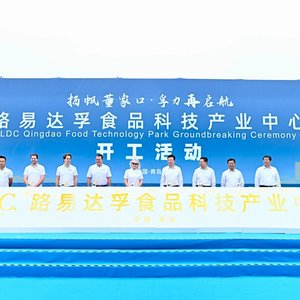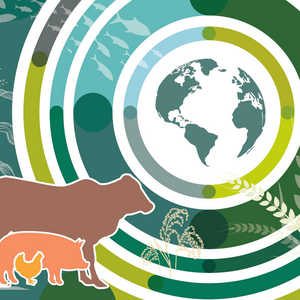Aquaculture without Frontiers
Helping the poor to grow food in water
The Next Step: A Plan for Growth
A message from the founder
Michael New, OBE
I founded Aquaculture without Frontiers (AwF) after 25 years of public aquaculture service, where I witnessed desperate poverty and developed the certain belief that peoples’ lives could be improved by teaching them to grow food in water. In two years since its founding, my notion that AwF was a vehicle through which this can be done has been confirmed.
However, we can do so much more and this presentation is at one and the same time an account of our achievements,a plan for growth and an appeal for help. We seek pledges totaling $360,000 by April 2007 to enable us to embark on a five-year plan that will alleviate the poverty of thousands of families while teaching them to care for and nurture one of the Earth’s most precious natural resources, namely its water.
Aquaculture is an idea and an ideal in which we share a common belief. That it can provide both fine seafood for connoisseurs and also a basic source of nutritious food for some of the world’s poorest people speaks to what a powerful idea it really is.
However, the full power of its ideal will only be harnessed when those who can benefit from it most are shown how to do it. AwF’s purpose and its goal is to make this possible.
Please help me and AwF’s dedicated volunteers to achieve our goal.
Thank you and sincerely,
Michael New, OBE.
Aquaculture without Frontiers
The Idea
AwF helps poor people in rural areas in the third world to benefit from advances in modern aquaculture. It does this by teaching and showing them how to provide food for their families by farming in water, thereby improving their health and alleviating their poverty. It is modeled on the well known charity, Médecins sans Frontières, with volunteer experts from the aquaculture community providing help wherever a need is identified.
AwF is the only charity anywhere that specializes in aquaculture and it responds directly to needs and opportunities that its founder, Michael New, OBE, saw during the 25 years that he worked in developing countries for the EU, FAO and other international organizations. It was established in 2004 and since then has completed or is involved in eleven projects that have helped over 500 families at a total cost of only $88,000. Description of some of its projects is provided later in this plan.
Having proved the concept, AwF is ready to grow, specifically by establishing a base in the
The need
Aquaculture can be defined simply as ‘growing things in water’. This does not mean it is simple to do or that it is a familiar concept, like terrestrial farming, which young people learn merely by growing up surrounded by farm animals and plants. In fact, many people grow up with the idea that water is where they either hunt for their food by fishing or where they dispose of their waste, not that it can be cared for and nurtured to produce food.
Many bodies of fresh and coastal water are some of Earth’s most productive, albeit fragile, ecosystems and, if properly cared for, can yield nutritious food that can materially improve the diets of those who tend it. By teaching people how to grow food in these waters, not only do they learn to provide for themselves but they also learn to care for and protect this precious resource.
There are needs and opportunities for basic aquaculture education in much of the undeveloped world. In many cases, national and international agency programs are already in place to provide education and training at higher levels. However, the structure and the means to extend this knowledge to the grass roots level is often lacking or inadequate.
AwF, by being wholly independent and able to draw on the hugely diverse expertise of its volunteers, is able to meet this need in a way that government agencies and even other
NGOs cannot. In effect it provides a free, specialist aquaculture extension service at the most basic level to those who are most in need.
The mission
The key to AwF’s work is on-the-ground training and guidance provided by people who are not only experts in their field but who also care about the Earth’s water resources and about its people. The volunteers who have promised to help AwF have spent their lives working in aquaculture. Most of them began because of a fascination with water and the creatures that live in it. To want to share this with others and, in doing so, to help them help themselves comes instinctively.
AwF’s mission is to provide the structure and the means to help them to do this. For our volunteers and our benefactors this is enormously rewarding, because it is done through aquaculture, an idea and an ideal in which we all share a common belief.
Operating Principles & Governance
AwF works on the following principles:
• It helps the rural poor.
• The experts it deploys are primarily volunteers.
• Its efforts are focused at the individual family or family group level.
• Projects are vetted by AwF’s Technical Advisory Group.
• All its funding is from donations or grants.
• Administrative expenses are kept to a minimum.
AwF is governed by a board of trustees and a technical advisory group drawn from a group of 31 founding members. As AwF grows, this group will be expanded to respond to new needs and challenges as required.
Further details about AwF’s Operating Principles and Strategies are provided on its website at http://www.aquaculturewithoutfrontiers.org
Biographical sketches of AwF’s board of trustees are provided at the end of this presentation. These people are leaders in the global aquaculture community. Four of them are past presidents of the World Aquaculture Society (WAS), including the founder of AwF, Michael New, who is also a past president of the European Aquaculture Society and was honored by the Queen of England in 1999 for his services to aquaculture in developing countries. Among this group of aquaculture leaders there is vast experience of global aquaculture opportunities and challenges. Few philanthropic organizations have the benefit of having such a distinguished board to guide them.
Projects and Organization
Projects are presently identified in several ways:
1. Requests by individuals, government agencies or NGOs in developing countries for AwF to plan new projects and to implement them.
2. Suggestions from trustees or colleagues of trustees who have identified a need in a developing country, possibly in association with other projects.
3. Requests by companies or individuals for AwF’s help to apply funds to causes they have identified such as a response to a natural catastrophe.
4. Requests by NGOs or other agencies for AwF’s technical assistance in projects on which they are already engaged.
5. Direct calls for applications for AwF support, possibly targeted at a particular location or type of aquaculture (this has not yet been done because of limited AwF funds).
Having been identified and planned in outline projects are then vetted by AwF’s Technical Advisory Group which selects those that will be funded. They are then planned in detail and implemented. AwF is fortunate to have board members, advisors, donors and volunteers in many countries, so on the ground pre-project visits can be undertaken cost effectively.
Some examples of AwF projects are described and illustrated below.
Following the devastating tsunami on 26 December 2004, there was an unprecedented outpouring of public sympathy. Aquaculture companies involved with the World Aquaculture Society (WAS) wanted to know how they could help affected farmers. In turn, WAS asked AwF if it could help. AwF agreed and within days it was able to channel donor funds for pilot projects to rehabilitate ponds, water supply canals and shrimp hatcheries to allow a small number of farmers to get back to business.
Following this AwF provided a series of workshops on the reconstruction of shrimp hatcheries and ponds and on the development of sustainable coastal aquaculture. AwF’s small bureaucracy meant that while funds and support from many other NGOs and governments were tied up in administrative procedures for weeks and months, AwF was able to respond to a clear and urgent need quickly and efficiently.
St. Xavier’s Bishramganj,
This project has two partners, AwF and the St Xavier’s Bishramganj-India integrated agriculture demonstration farm and training centre. The project has trained more than 50 families to construct or improve existing ponds and shown them how to operate them to maximize output. There is a focus on youth, to create employment and to improve agriculture productivity. The relationship with the NGO has allowed AwF to focus its scarce resources on providing the specialized aquaculture know-how in which it excels.
In cooperation with the World Vision Foundation
One of two projects in
| Activities 2006 - 2007 | M | A | M | J | J | A | S | O | N | D | J | ||||||||||
| Farmers selection | X | ||||||||||||||||||||
| Training | X | ||||||||||||||||||||
| Pond Selection | X | ||||||||||||||||||||
| Pond preparation | X | ||||||||||||||||||||
| Cage construction | X | ||||||||||||||||||||
| Fry purchasing | X | X | X | ||||||||||||||||||
| Fry nursing in ponds | X | X | |||||||||||||||||||
| Fry stocking in cages | X | X | |||||||||||||||||||
| Feeding of fish | X | X | X | X | X | X | X | X | X | X | |||||||||||
| Harvesting | X | ||||||||||||||||||||
| Monitoring & data collection | X | X | X | X | X | X | X | X | X | X | X | ||||||||||
| Progress reports | X | X | |||||||||||||||||||
| Dissemination workshop | X | ||||||||||||||||||||
Associated organization
Presently AwF has agreed to the establishment of an independent autonomous sister organization in










